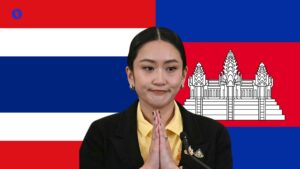Tensions are flaring up again between Kosovo and Serbia.
Why?
Kosovo was part of Serbia until it broke away and declared independence in 2008, a move Serbia has refused to recognise. A majority of folks in northern Kosovo are ethnic Serbs who don’t recognise Kosovo either. Over the years…
Stay on top of your world from inside your inbox.
Subscribe for free today and receive way much more insights.
Trusted by 134,000+ subscribers
No spam. No noise. Unsubscribe any time.
- Kosovo has accused Serbia of wanting to annex the area, and
- Serbia has accused Kosovo of persecuting the local ethnic Serbs.
Things then escalated on 24 September, when an ethnic Serb paramilitary group ambushed a Kosovo police patrol in the north. They killed one officer and lost three of their own, barricading themselves in a monastery.
Things escalated even further when Milan Radoičić, who was at the time a top leader in the main ethnic Serb party in Kosovo, admitted participating in the ambush. Local media then tracked him to Serbia, where he’d fled.
Kosovo accuses Serbia of orchestrating all this as a pretext for an armed intervention to “protect” local ethnic Serbs. Serbia denies any role and has claimed it was all the result of Serbs “protecting themselves”; its authorities detained Radoičić on Tuesday before granting his conditional release.
In parallel, NATO countries got involved:
- 🇺🇸 The US called for Serbia to reduce its “unprecedented” military build-up on the Kosovo border or face punitive measures
- 🇬🇧-🇷🇴 Britain deployed 600 troops to the NATO mission in Kosovo while Romania pledged an additional 100 soldiers, and
- 🇪🇺 The EU threatened to impose sanctions on Serbia if evidence emerged linking Belgrade to last month’s deadly shootout.
Following further calls from Kosovo, Serbia then announced on Monday a partial drawdown of troops, in a move subsequently welcomed by the US.
Intrigue’s take: Still with us?
The world is full of borders that don’t necessarily match communities. External powers can often impose a kind of local stability, but many such powers are finding themselves stretched pretty thin right now. And that’s opening up windows for local players to shoot their shot again.
Also worth noting:
- Kosovo has cited the paramilitary’s use of Serbian-made weapons as evidence of Belgrade’s involvement. Serbia has denied this.
- Kosovo says 117 countries recognise it. Serbia says 28 of them have subsequently withdrawn their recognition. Russia, which has close ties with Serbia, has said it will veto Kosovo’s UN membership.
- Earlier this year, the EU sanctioned Kosovo officials when violent clashes erupted, after Pristina moved to install northern mayors who were elected in a vote boycotted by the local Serb majority.
- The EU launched the Belgrade-Pristina Dialogue in 2011, to achieve a binding normalisation between Kosovo and Serbia.







